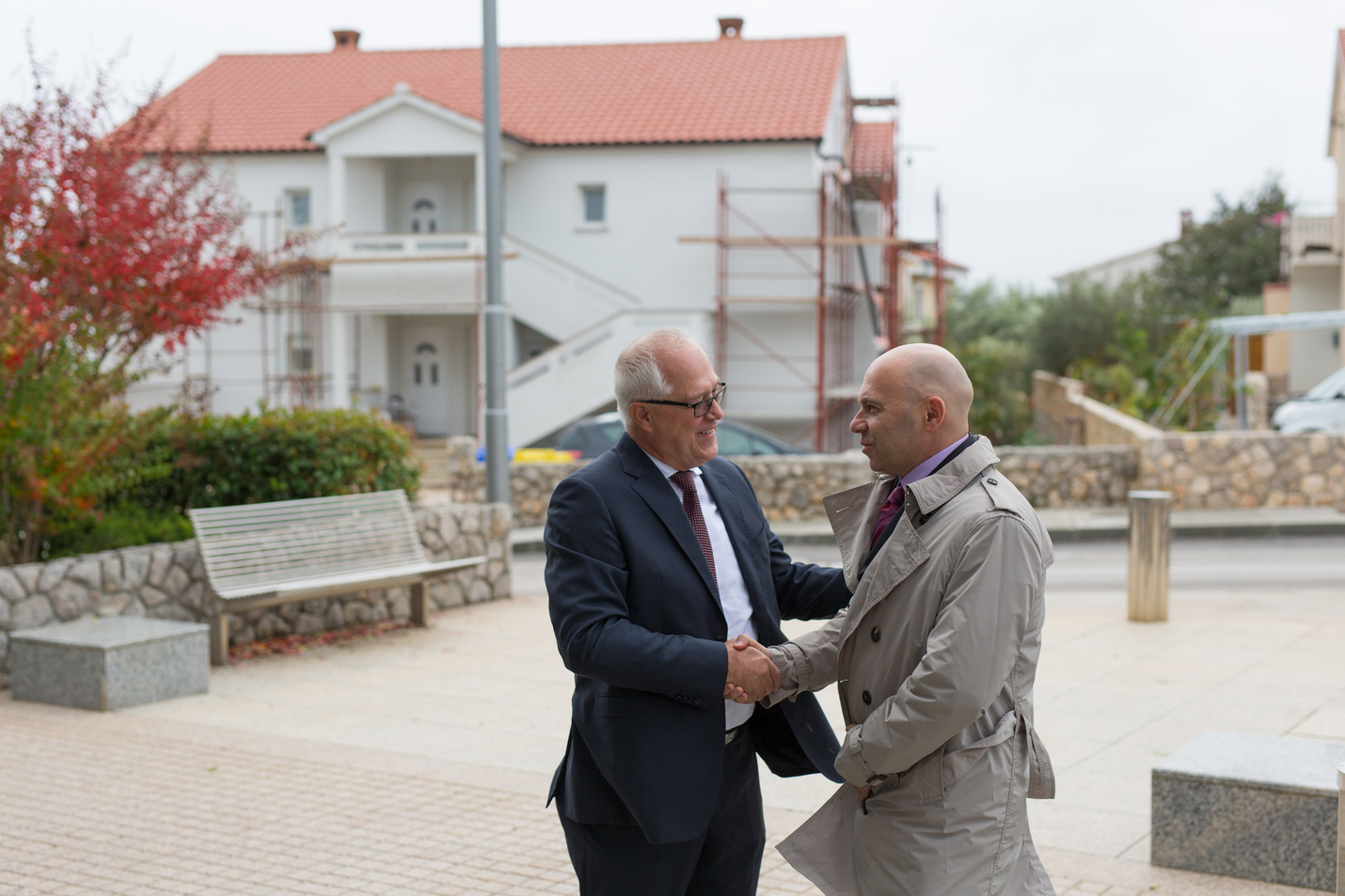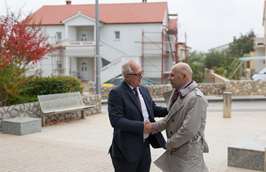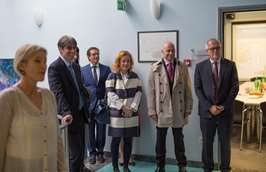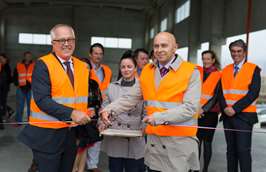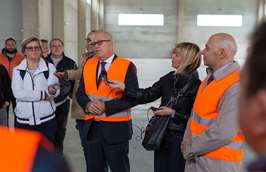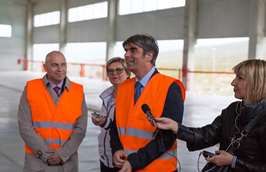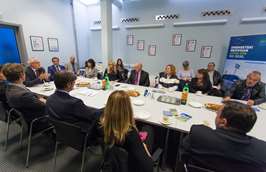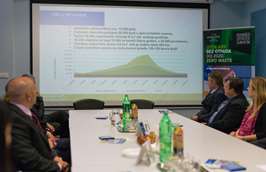29.10.2018.
The island of Krk is, in terms of waste, miles ahead of the rest of Croatia, and many others should follow your example – said director of the Environmental Protection and Energy Efficiency Fund, Dubravko Ponoš, during the ceremony of opening of the Transfer station “Treskavac” on the island of Krk. The investment is worth 7.5 million kuna, of which 4.6 million has been secured by the Fund, and the remaining amount was provided by the units of local self-government on Krk.
“The solidarity of everyone on the island produced an excellent result; 57% of waste is sorted, but we still have work ahead of us”, said the mayor of Krk Darijo Vasilić.
The new transfer station will allow the part of waste that cannot be recycled to be transported to the regional centre in Marišćina, whereby the conditions will be created to close down the landfill on Krk. Only the mechanical and biological treatment of waste will continue operation on location Treskavac, together with the sorting plant and composting plant, where separately collected waste is treated. So far, 90 million kuna has been invested in the Krk waste management model, and the investment cycle will be completed with three highly important projects – a reconstruction of the existing soring plant, and the purchase of underground containers and two specialised garbage trucks.
Director of the utility company Ponikve, Ivica Plišić, explained that along with the environmental, the waste management model implemented on Krk has many other advantages. 50 new workers have been employed, and significant developments have been made in the tourism sector because the island of Krk is becoming an increasingly environmentally friendly destination. Finally, there are very distinct economic benefits for the inhabitants of Krk. “Disposal of municipal solid waste in regional centres, which is our legal obligation and practice at EU level, is more expensive compared to the method used so far, when we simply landfilled the waste without previous treatment. This means, the higher the level of separate collection of waste, the lower the cost of disposal at the regional centre. Consequently, this implies a slight price increase for our customers”, explained Plišić.
In conclusion, director Ponoš remarked that he was very pleased with the fact that the utility company Ponikve was continuously conducting educational programmes, especially for preschool and school children.
